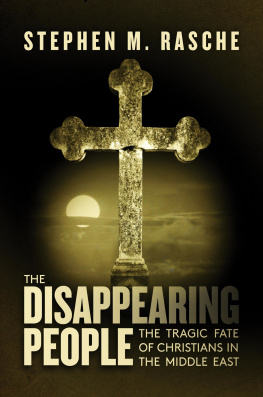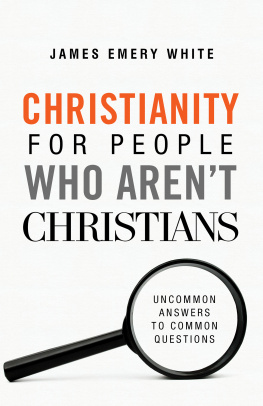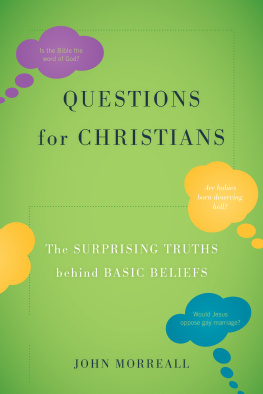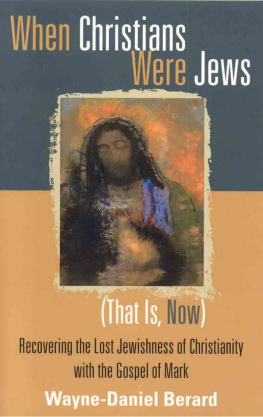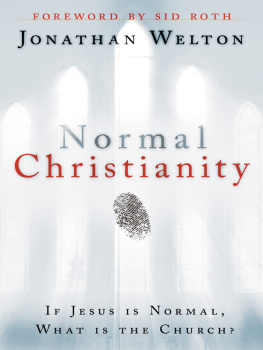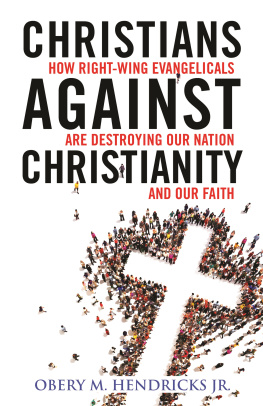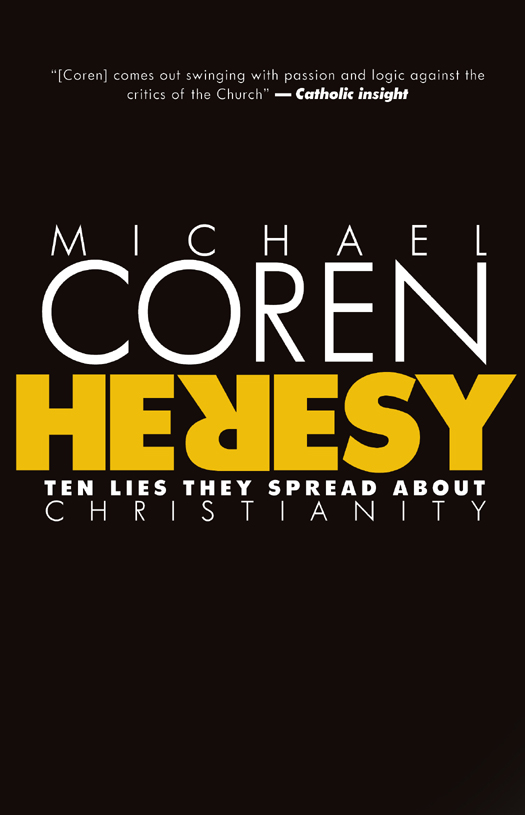ALSO BY MICHAEL COREN
Why Catholics Are Right (2011)
As I See It (2009)
J.R.R. Tolkien: The Man Who Created the Lord of the Rings (2001)
Setting It Right (1996)
The Man Who Created Narnia: The Story of C.S. Lewis (1994)
The Life of Sir Arthur Conan Doyle (1993)
The Invisible Man: The Life and Liberties of H.G. Wells (1993)
Aesthete (1993)
Gilbert: The Man Who Was G.K. Chesterton (1990)
The Outsiders (1985)
Theatre Royal: 100 Years of Stratford East (1985)
Copyright 2012 by Michael Coren
Signal is an imprint of McClelland & Stewart Ltd.
All rights reserved. The use of any part of this publication reproduced, transmitted in any form or by any means, electronic, mechanical, photocopying, recording, or otherwise, or stored in a retrieval system, without the prior written consent of the publisher or, in case of photocopying or other reprographic copying, a licence from the Canadian Copyright Licensing Agency is an infringement of the copyright law.
Library and Archives Canada Cataloguing in Publication
Coren, Michael
Heresy : ten lies they spread about Christianity / Michael Coren.
eISBN: 978-0-7710-2314-9
1. Christian heresies. 2. Theology, Doctrinal. I. Title.
BT1315.3.C67 2012 273 C2011-907958-5
We acknowledge the financial support of the Government of Canada through the Canada Book Fund and that of the Government of Ontario through the Ontario Media Development Corporations Ontario Book Initiative. We further acknowledge the support of the Canada Council for the Arts and the Ontario Arts Council for our publishing program.
Library of Congress Control Number: 2011945917
McClelland & Stewart Ltd.
75 Sherbourne Street
Toronto, Ontario
M5A 2P9
www.mcclelland.com
v3.1
To Walter Hooper
CONTENTS
I
Jesus Didnt Exist and Christianity Is a Later Creation
II
There Is No God, Bad Things Happen to Good People, and So On
III
The Da Vinci Code
IV
All the Clever People Are Atheists. Or, Christians Are Stupid
V
Hitler Was a Christian
VI
Christians and Christianity Supported Slavery
VII
Christians Are Opposed to Science
VIII
Christians Oppose Progress and Change
IX
Christians Are Obsessed with Abortion
X
What Else Can We Throw at Christians?
INTRODUCTION
IN THE SUMMER OF 2011 , a horrendous mass murder occurred in Norway, with more than ninety people, most of them teenagers and even children, being slaughtered in a co-ordinated bomb and gun attack. Various Islamic groups initially claimed responsibility, and had been promising an attack on Norway for some time because of that countrys commitment to the Afghanistan war, Oslos prosecution of a specific Islamic war criminal, and Norways refusal to ban the publication of a cartoon of Mohammad that many Muslims found offensive. The nature and implementation of the attack first a diversionary explosion to attract security and emergency services, followed by a targeted gun slaughter resembled the work of Islamic terror groups, who had perfected the approach in the Middle East and other parts of Europe. In the end, the killer, Anders Behring Breivik, was revealed to be a native blond, blue-eyed Norwegian, a strange and disturbed loner, whose motivation was partly political, and whose ideology seemed in some confused, confusing way to be based on an objection to Islam, multiculturalism, and Marxism. Yet within hours of Breiviks attack, there were countless accusations in newspapers and on radio and television that the gunman was a Christian fundamentalist, motivated by his evangelical Christian religion to hate progress, change, and, in particular, Muslims. Why, therefore, he should attack a group of young people who were themselves mostly Christians was not fully explored, especially when there were myriad Islamic targets in Norway. But the sudden, new, self-evident fact that he was a Christian fundamentalist was repeated over and over again in media reports, until it was considered virtually treasonous to question the statement.
The reason he was now a Christian bogeyman was that he allegedly regarded himself as a Christian, and that he had posted some comments on a Christian fundamentalist blog. Flimsy evidence at best, but it was sufficient to set off anti-Christian alarm bells the world over. What was not really explained, or certainly understood or even taken into account, however, was that Breivik was an active Freemason, which was pretty obvious to anybody paying attention in that the standard photograph of him published by the media showed him posing in his Masonic regalia and apron. A journalist worth the name, or even an onlooker with any sense, would have realized that Christian fundamentalism regards Freemasonry as an anti-Christian cult, one that is more in league with the anti-Christ than Christ. Fundamentalist churches forbid Masons from being members of their congregations, as do most mainstream evangelical denominations. Roman Catholicism also condemns Freemasonry, and Catholic and evangelical publishers offer a series of books explaining why no follower of Christ can be a Mason. All of this, it seemed, was too esoteric and complex for the Christianbashers who suddenly smelled relativism and blood. Or, perhaps, bloody relativism.
It also quickly emerged that Breivik was supportive of the gay community, which again would make him an impossible fundamentalist. Nor did he have any known affiliation to any church, which is crucial for an evangelical in good standing, and for a Catholic, who is obliged to receive the Sacraments. We also soon discovered that he had never written anything about his supposed fundamentalist Christian beliefs, did not quote Scripture, and was within hours of investigation shown to be the most eccentric Christian fundamentalist in the history of Christian fundamentalism. But facts should never be allowed to get in the way of a good story, and doubly so when the story centres on evil Christians. Indeed, in his personal manifesto the killer wrote:
Regarding my personal relationship with God, I guess Im not an excessively religious man. I am first and foremost a man of logic. However, I am a supporter of a monocultural Christian Europe. If you have a personal relationship with Jesus Christ and God then you are a religious Christian. Myself and many more like me do not necessarily have a personal relationship with Jesus Christ and God. We do however believe in Christianity as a cultural, social identity and moral platform. This makes us Christian.
No intelligent person, and certainly no informed Christian, would regard this as the statement of a follower of Christ, let alone a fundamentalist follower of Christ. Its more the soggy confession of a secularist, who likes tradition and Christmas holidays, but rejects every tenet of classic Christian belief. At this stage, however, there was no stopping the journalists and the bloggers who seemed hysterically committed to blaming grotesque violence on Christians and Christianity; the folk tale of the Norwegian Christian mass murderer was firmly rooted in the psyche of mass opinion. Now, and especially then, if anybody dared to gently suggest that the real issue was the victims, and the actions of an insane man, and had nothing to do with love-based, gentleness-based, forgiveness-based Christianity, they were condemned as apologists and deniers, and even threatened and attacked. Actually, none of this came as much of a surprise, in that the same thing occurred when American right-wing extremist Timothy McVeigh carried out his deadly attack in Oklahoma in 1995, killing 165 people and injuring more than 800. He was an atheist, whose letters had repeatedly outlined his hatred for God. Science is my religion, hed said, and had abandoned the Roman Catholicism he had been born into many years before he became a deranged killer. He proudly told those around him that of course he did not fear Hell, because Hell did not exist. Hardly the opinion of a Christian. But he was white and Western, so hell make do as a Christian for those whose prejudice drowns their reason.



